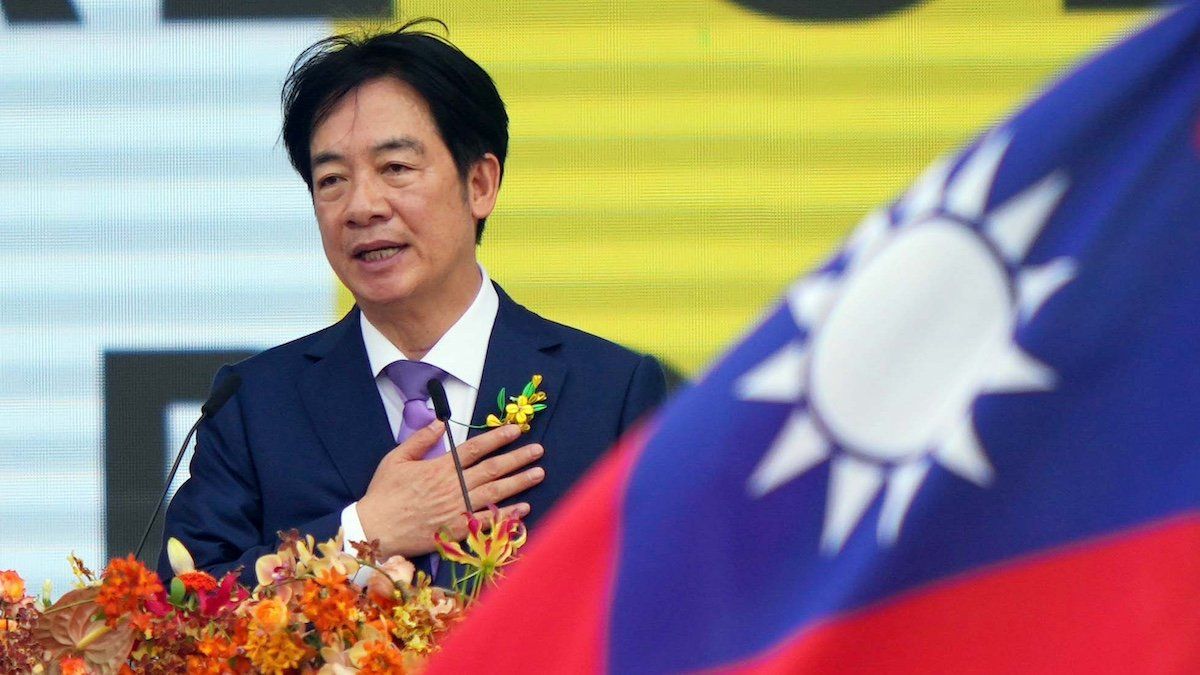The Democratic Progressive Party’s William Lai was inaugurated as Taiwan’s 8th president on Monday. His pro-independence inclinations cause consternation across the Strait, but Beijing’s domestic position and relations with the United States make discretion the better part of valor for the moment.
Lai is expected to follow his predecessor Tsai Ying-wen’s policies closely, given he served as her VP. That means pursuing closer ties with the United States where he can, and building up deterrent capacity against a Chinese invasion without provoking Beijing — much easier said than done.
In the short term, however, China isn’t likely to cross any rubicons. The foreign ministry's response to Lai’s inauguration message was pretty tame, just an insistence that "Taiwan independence is destined to fail," because Beijing has its eye on the US relationship. Both Washington and Beijing have committedly pursued stabilization of relations over the past year and change, with some good progress to show for it. No point in risking all that to show Lai how much they dislike him (he’s well aware!), particularly with a lackluster economy to worry about as well.
